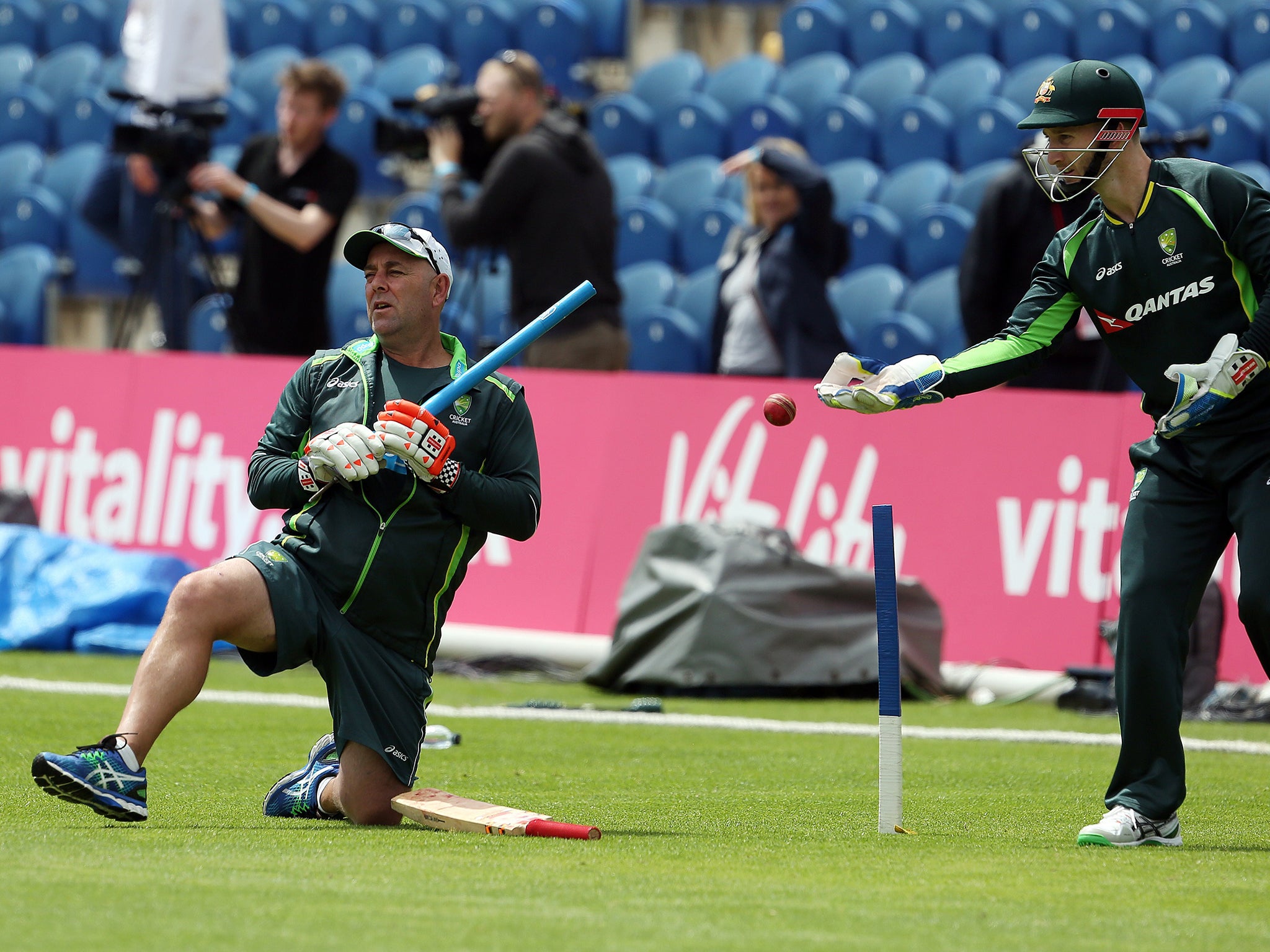Ashes 2015 - Damien Fleming: Darren Lehmann must convince his bewildered side it really was just a hiccup – then let them prove it
THE AUSSIE ANGLE

Waking up to rain in Cardiff om Sunday on what was scheduled to be the last day of the first Test, I thought play looked very unlikely – particularly as Australia had already lost the game! What a poor joke from the cricketing gods teasing us Aussies. What if we’d had wickets in hand at the end of day four? A draw possibly?
But let’s be honest, we would have been lucky to get away with a draw. Things went horribly wrong for Australia in Cardiff. England were very good, particularly with the ball, and their catching was first class. Whereas the Aussie bowlers were unable to build pressure with maiden overs and partnership bowling, top-order batsmen failed to convert promising innings or partnerships into 100s, and then there was that fateful dropped catch.
The Australians would have woken to feelings of anger, disappointment, possibly some bewilderment at how quickly they found themselves down a Test in the series.
Ashes 2015 First Test in pictures
Show all 45Physical skills can be worked on with individual players and specialist coaches. But for the mental/emotional side of the squad, it’s the Aussie coach who comes into play. It’s a role he does well and he’s going to have to be at his best. Our Bruce Willis-looking coach Darren Lehmann has plenty of positives as a bloke. One I always admired is his ability to deal with issues head-on, frankly, honestly and to the point. Then as quickly as they are confronted they’re gone, deleted because he doesn’t like leaving an emotional residue. A beer, a laugh, an arm around the shoulder, we move on together. His coaching mantra will be to train them hard but keep the mood positive. And prove at Lord’s that Cardiff was just the “minor hiccup” he has described it as.
Reflecting on that Mitchell Starc over on day one is a reminder of how split-second moments can change Tests matches. Starc started with a fast, late-swinging inswinger that trapped Ian Bell dead in front lbw. Out strides Joe Root, England’s No 1 batsman and an absolute run machine. He just survives another wonderful inswinger first ball. Second ball Starc, whether intentionally or not, angles across Root who, waiting for the swing in, plays a half-hearted drive and edges it behind.
At this moment England are on the way to being 43 for 4 and in deep, deep trouble. But the catch goes to ground and Root cashes in with his second chance and makes the only 100 of the Test – giving him three days to work out his man-of-the-match speech.
It wasn’t a great Test for Brad Haddin, the dropped catch and then out slogging Moeen Ali first ball of his new spell on the last day. He has been a very good Test player, particularly in the Ashes; hopefully this is a slight blip in another solid series.
Building pressure from both ends was a problem for the Australians. No doubt we missed Ryan Harris, as he was a great attacking and defensive bowler: great penetration with his outswinger, first-class strike-rate of 51 balls per wicket, but if he wasn’t getting wickets he would only go at an average of 2.78 runs per over, building pressure for the bowler down the other end. Alas, he’s gone, but all Aussies appreciated his wholehearted efforts.
Big Josh Hazlewood is already there at a rate of 2.70 runs per over that should set the standard for his career. Mitch Johnson is a purely attacking wicket-taker, snaffling a wicket every 51 balls, but goes for 3.39 rpo.
At this stage of his career Starc is a very attacking bowler, dismissing plenty of batsmen – seven in the last Test – but at 3.37 rpo. I’m sure Starc will continue to develop his defensive skills and therefore will be a more complete bowler.
And, of course, the main role of a No 6 all-rounder is to score runs, but Watto was selected over Mitch Marsh to fill a defensive bowling position as it was thought he has more control and will be therefore more economical. His role was to bowl line and length to straight fields, basically to be as boring as a bass solo. Thirteen overs for 47 runs in this Test is far from miserly and doesn’t give the quicks a great rest either.
Where now for the Aussies? This touring team was selected with the ideology of having the right balance of players to win an Ashes series. First-Test teams are selected to win, then ideally play all five Tests to win the series unchanged, unless there are injuries or horses-for-courses conditions.
But the balance of showing faith in the incumbent players or assessing the need to be proactive is the tough question for the Aussie selectors. Lose at Lord’s and you are more likely to see an AC/DC rap song than winning an Ashes series from 2-0 down.
I wouldn’t be looking to make too many changes for Lord’s because that would convey a sense of panic. Obviously, if the ankle injury to Starc makes him unplayable, a change will be made. I would play Peter Siddle, the resilient Victorian known for his steadiness with the ball. This could open a spot for the aggressive Mitch Marsh to replace Shane Watson.
--
Damien Fleming played 20 Tests for Australia and is the author of Bowlology. Follow him on Twitter @bowlologist
Subscribe to Independent Premium to bookmark this article
Want to bookmark your favourite articles and stories to read or reference later? Start your Independent Premium subscription today.

Join our commenting forum
Join thought-provoking conversations, follow other Independent readers and see their replies